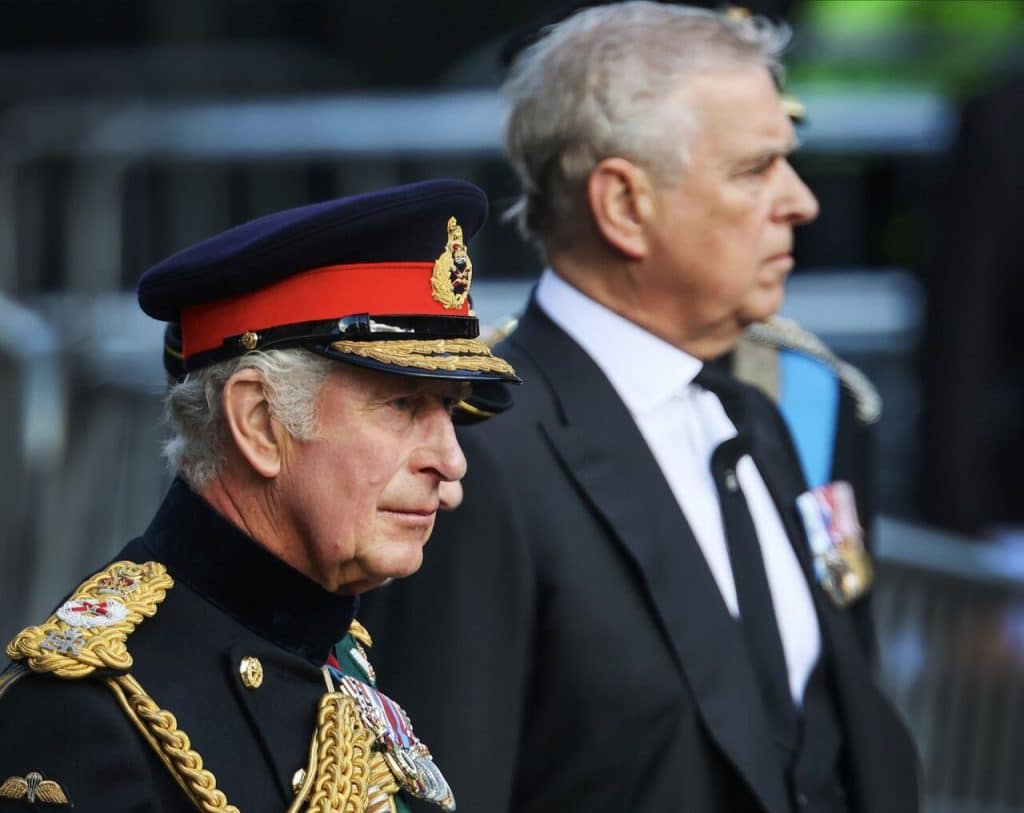Charles’ fight to preserve the monarchy.
British society is in shock after Andrew’s sexual misconduct scandals and the king’s historic decision to expel his brother from the royal family. Large-circulation newspapers, including The Guardian, The Independent, and The Times, have devoted their front pages to the consequences of this decision over the past two days, calling it a defining moment for the future of the monarchy. Media analysts have described the move as “a necessity to preserve the image of the court” on the one hand, and as a sign of a crisis rooted in the erosion of public trust in the entire structure of the monarchy on the other.
According to published reports, Buckingham Palace has confirmed that the formal process has begun to remove Andrew’s “Prince” title and royal titles, and he will henceforth be known as “Andrew Mountbatten-Windsor”. He has also been ordered to vacate his private residence at Royal Lodge in Windsor.
At the same time, radio stations were hosting heated debates about the need to continue the monarchy, arguing that a system based on “accidents of birth” could no longer make sense in a modern society. One of the most heated debates took place on LBC, where a presenter sarcastically suggested that if something had happened to Charles during Elizabeth II’s reign, Andrew, now removed from the throne, would have been heir to the throne. This, he said, showed that the monarchy in England was based not on merit but on lineage.
In these debates, many participants and media analysts believed that Charles’ decision was more about justice or morality than about an attempt to save an institution that had been shaken by public opinion, moral scandals, and a financial crisis. Sky News wrote in a recent analysis that the decision is not simply a reaction to past scandals, but a “painful surgery” to preserve the monarchy’s credibility.
This comes as data from British opinion polls shows that support for the monarchy has fallen sharply in recent years. According to a YouGov poll in August 2025, only 59% of people said the monarchy was “good” for the country, down from more than 75% in 2012. Among young people under 30, support for the monarchy has fallen to around 36%, and nearly half of this age group prefer the head of state to be elected.
The National Center for Social Research (NatCen) also announced in its annual report that support for the monarchy has fallen to an all-time low, with only 51% of respondents considering it an “important” institution for the country’s future, down from more than 80% in the 1980s.
This significant decline in public trust has led observers to see Charles III’s recent decision as a calculated attempt to preserve the monarchy’s standing in a society that has become more sensitive than ever to hereditary privileges, the costs of Buckingham Palace, and the gap between the court and the public.
The Guardian newspaper wrote in its commentary that Andrew’s removal of titles symbolized “a shift in the approach to the monarchy” that can no longer rely on tradition or family ties to avoid scandal. The Times also assessed the recent decision as “a bitter necessity to protect the institution of the monarchy” and emphasized that the king is now in a position where he must choose between preserving his family and preserving the institution of the monarchy.
On the BBC’s live “Question Time” program, when the news of Andrew’s removal of titles was announced, the audience in the studio reacted with continuous applause; A scene that the Independent newspaper described as “a sign of changing times” and considered it indicative of the decline in the taboo against criticizing the monarchy in society.

